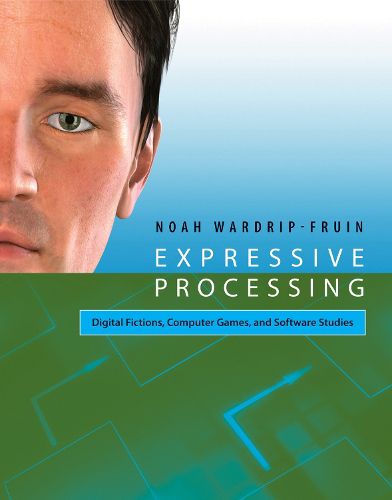Readings Newsletter
Become a Readings Member to make your shopping experience even easier.
Sign in or sign up for free!
You’re not far away from qualifying for FREE standard shipping within Australia
You’ve qualified for FREE standard shipping within Australia
The cart is loading…






What matters in understanding digital media? Is looking at the external appearance and audience experience of software enough–or should we look further? In Expressive Processing, Noah Wardrip-Fruin argues that understanding what goes on beneath the surface, the computational processes that make digital media function, is essential. Wardrip-Fruin looks at expressive processing by examining specific works of digital media ranging from the simulated therapist Eliza to the complex city-planning game SimCity. Digital media, he contends, offer particularly intelligible examples of things we need to understand about software in general; if we understand, for instance, the capabilities and histories of artificial intelligence techniques in the context of a computer game, we can use that understanding to judge the use of similar techniques in such higher-stakes social contexts as surveillance.
$9.00 standard shipping within Australia
FREE standard shipping within Australia for orders over $100.00
Express & International shipping calculated at checkout
What matters in understanding digital media? Is looking at the external appearance and audience experience of software enough–or should we look further? In Expressive Processing, Noah Wardrip-Fruin argues that understanding what goes on beneath the surface, the computational processes that make digital media function, is essential. Wardrip-Fruin looks at expressive processing by examining specific works of digital media ranging from the simulated therapist Eliza to the complex city-planning game SimCity. Digital media, he contends, offer particularly intelligible examples of things we need to understand about software in general; if we understand, for instance, the capabilities and histories of artificial intelligence techniques in the context of a computer game, we can use that understanding to judge the use of similar techniques in such higher-stakes social contexts as surveillance.